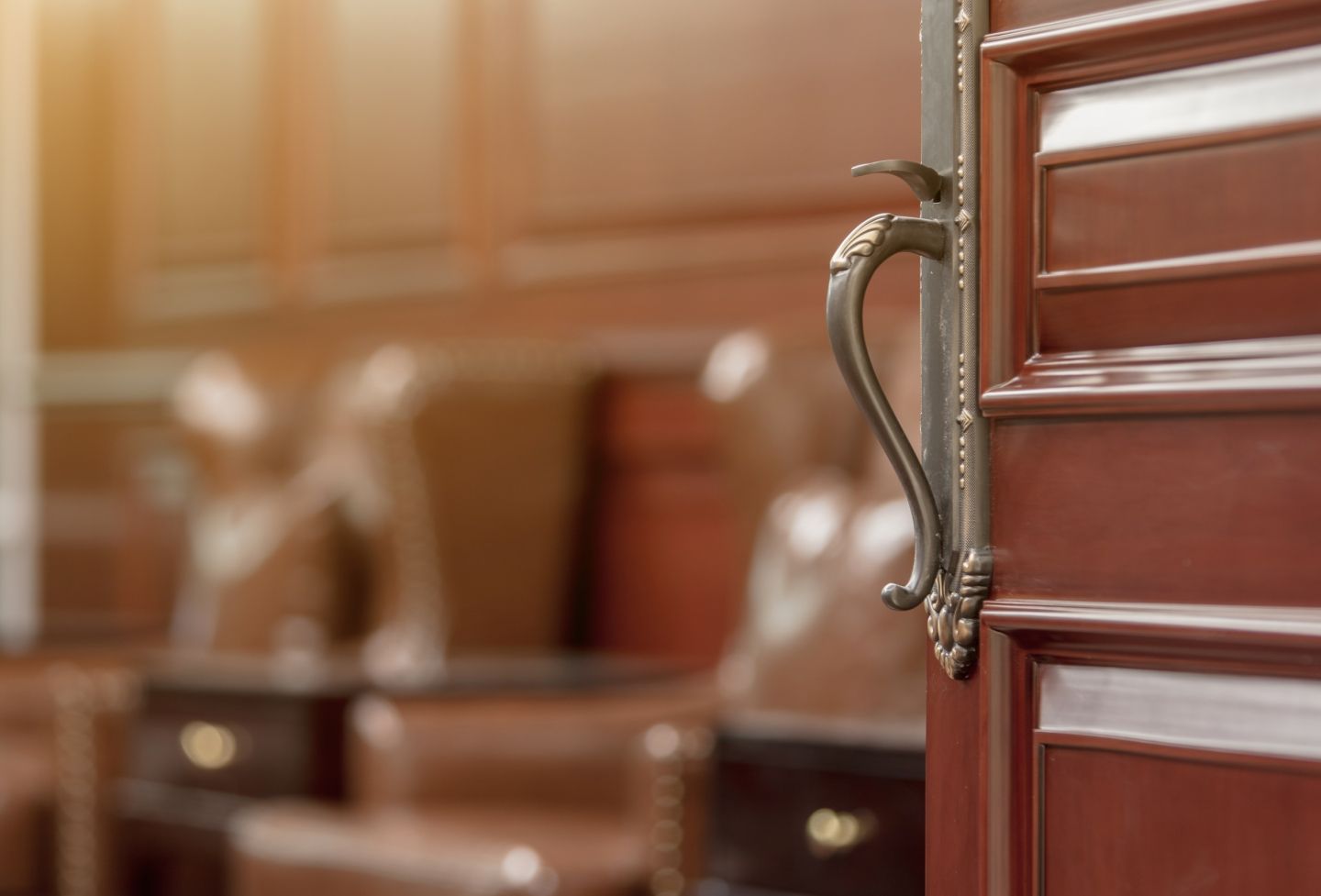Andrew Kilberg, a 2014 graduate of the University of Virginia School of Law, will clerk for U.S. Supreme Court Justice Anthony Kennedy during the 2015-16 term.
Kilberg is the fourth UVA Law graduate named to clerk at the Supreme Court next term, which ties a school record from the 2009-10 term. He joins Ben Tyson J.D.-MBA '14, Galen Bascom '13 and Jonathan Urick '13, who will clerk for Chief Justice John Roberts and Justices Antonin Scalia and Stephen Breyer, respectively. Virginia is fourth in contributing the most clerks to the U.S. Supreme Court from 2005-14, after Harvard, Stanford and Yale. (More)
Kilberg is currently clerking for 4th U.S. Circuit Court of Appeals Judge J. Harvie Wilkinson III '72, and was on his lunch break with Wilkinson and his fellow clerks when Kennedy called him personally. "I was in a quasi-state of shock," Kilberg said about receiving the news.
But when he told his parents, who both hold law degrees, they were exuberant. "When I reached my mother on her cell, she reacted with a very loud 'Yes!'" he said. "She's a big fan of Justice Kennedy."
Kilberg, who earned his bachelor's degree from Princeton University, served as articles development editor of the Virginia Law Review in his final year.
"I personally reviewed roughly 1,700 article and essay submissions in less than a year," Kilberg said. "I became familiar with substantive arguments in many different areas of the law, learned how to better manage my time, and honed my persuasion skills in long debates over whether to accept articles."
In September, the Law Review published Kilberg's article "We the People: The Original Meaning of Popular Sovereignty," a note that resulted from an independent study project supervised by Professor John Harrison. The piece proved to be a solid writing sample for his clerkship applications, he said.
As a participant in last year's Supreme Court Litigation Clinic, Kilberg was also able to say in his applications that he helped win a case before the court. Under the leadership of clinic instructors Dan Ortiz and John Elwood, he was part of the team that drafted the reply brief in Rosemond v. United States.
Kilberg credited classes taught by Professors Caleb Nelson and Saikrishna Prakash, in addition to the positive influence of classmates, as formative to his intellectual growth.
"Professor Nelson's Federal Courts class should be a required course for all law students, not just at UVA, but nationally," Kilberg said. "And Professor Prakash's Constitutional Law and Presidential Powers classes introduced me to the breadth and subtleties of constitutional law."
But Kilberg said that working under Judge Wilkinson has been the ultimate training for the Supreme Court job.
"Legal writing is an exercise in persuasion," Kilberg said. "Judge Wilkinson is an exceedingly thoughtful writer, and I can think of no better teacher of the craft."
Following his Supreme Court clerkship, Kilberg hopes to practice appellate and trial litigation in Washington, D.C., where he plans to live with his wife, Julia.
Founded in 1819, the University of Virginia School of Law is the second-oldest continuously operating law school in the nation. Consistently ranked among the top law schools, Virginia is a world-renowned training ground for distinguished lawyers and public servants, instilling in them a commitment to leadership, integrity and community service.


